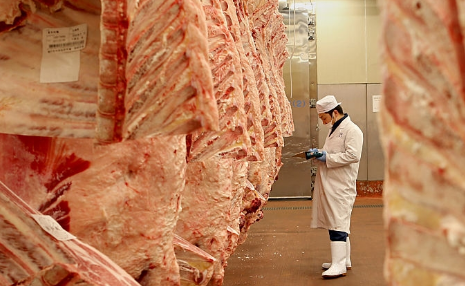Taiwan conditionally lifts import ban on Japanese beef

Japan Times | 19 September 2017
Taiwan conditionally lifts import ban on Japanese beef
(Kyodo) Taiwan has conditionally lifted a 16-year-old ban on beef imports from Japan, clearing a major roadblock in negotiations on an economic partnership agreement.
The Executive Yuan, the executive branch of Taiwan’s government, said on its website Monday that the new measure comes into force with immediate effect.
The announcement came after the Food and Drug Administration issued a two-month notification July 17 that Taiwan had decided in principle to lift the bans.
FDA Division of Food Safety section head Wu Tsung-his said the Taiwan government will now wait for the Japanese government to provide a list of government-certified facilities so Taiwanese importers can import Japanese beef from those facilities.
Nearly 95 percent of Taiwan’s beef is imported. Last year the United States was Taiwan’s No. 1 supplier by weight and value, followed by Australia and New Zealand.
Before the bans were imposed, following the discovery of cattle with mad cow disease, Japan exported a minuscule amount of beef and beef products to Taiwan.
In 2000, Japan shipped 4 tons, a mere 0.01 percent of the total amount imported by Taiwan that year.
According to the details published on the FDA website, when shipments resume, Japanese beef and beef products exported to Taiwan must come from cattle less than 30 months old. Younger cattle are considered at lower risk of mad cow disease.
Taiwan also agreed to resume Japanese beef imports on the condition that the cattle are slaughtered or processed at government-certified facilities, and come from cattle that can be traced to the farms where they were born and raised for more than 100 days.
Also, specific risk materials — parts of the cow that are at particular risk of infection — must be removed from cows slaughtered for beef and beef products shipped to Taiwan. Mechanically recovered meat, mechanically separated meat and advanced meat recovery products from the skull and vertebral will also not be accepted.
All imports of Japanese beef and beef products must also pass related radiation inspections and bear government documents with necessary information proving that they pass necessary inspections, the FDA website said.
Lifting the ban on Japanese beef is seen by many as an important step forward in the bilateral negotiations on an EPA.
With the lifting of the ban, both sides can move on to the next hurdle: restrictions on food imports from five prefectures imposed in the wake of the 2011 Fukushima nuclear disaster, according to sources familiar with the matter.
Following the March 2011 disaster triggered by a powerful earthquake and tsunami, Taiwan banned food imports from Fukushima Prefecture and nearby Ibaraki, Gunma, Tochigi, and Chiba prefectures, and in addition has been conducting random radiation checks on nine categories of imported foods.





